 |
 |
 |
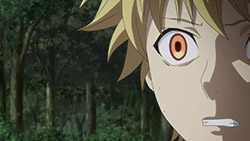 |
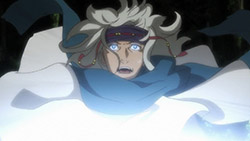 |
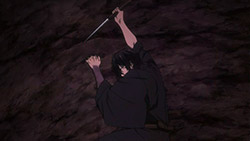 |
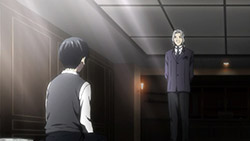 |
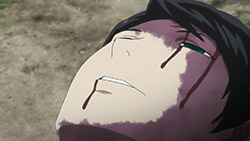 |
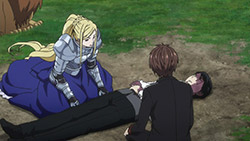 |
 |
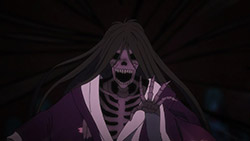 |
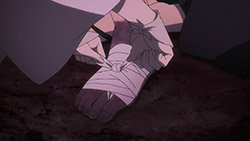 |
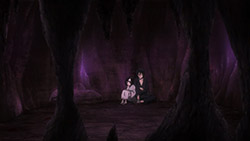 |
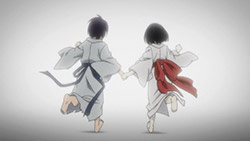 |
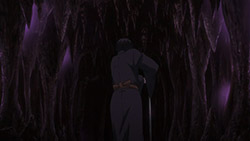 |
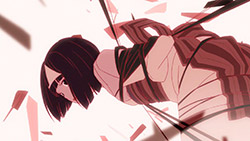 |
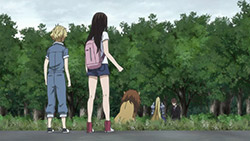 |
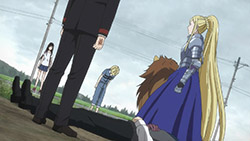 |
 |
 |
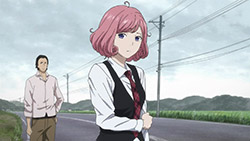 |
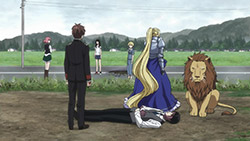 |
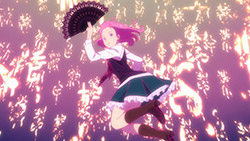 |
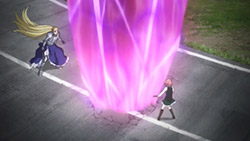 |
 |
 |
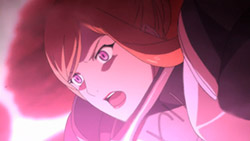 |
 |
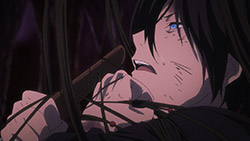 |
 |
 |
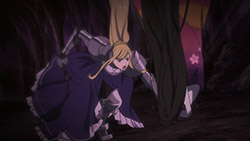 |
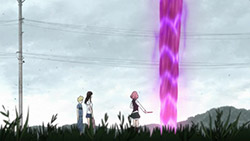 |
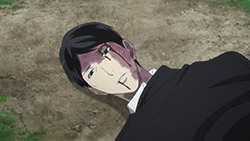 |
 |
 |
「復活」 (Fukkatsu)
“Revival”
The end draws near.
This week’s installment of Noragai Aragoto was exactly that—a lead-in to the season’s final few episodes. If the finale was just a clip of a Rube Goldberg machine in action, this episode would be a video of some adorable little Japanese man putting all the domino tiles and rubber bands in place (silly metaphor, I know).
That doesn’t mean, though, that Episode 11 didn’t contain much in the way of intriguing plot points and character developments. One event I was initially conflcited about was the brief return of prior antagonist Kuguha (who no longer goes by that name, as he might remind you). I questioned whether he had any relevant role to play in a narrative which was soon to reach its climax. However, when he explained to our internally confused Yukine the power of the Nora, his role became more clear.
His presence reinforces the internal conflicts and temptations which afflict Yato. Just as Kuguha explains, the power of Nora is nothing to sneeze at. To Yato, his own Nora is a source of longevity and invulnerability to disappearing forever (since brief stints with her grant him the name recognition he requires to live on), just as Kuguha—now a Nora—is invincible to incantations which rely on a single name. Even the previously strong-willed Yukine trembles from this realization.
However, the subsequent response from Hiyori proves to be a crucial crux of Yukine’s arc. Despite some convincing evidence that his master may very well have abandoned him, Hiyori’s input reminds the poor lad that his duty as a regalia is not to doubt or no longer serve his master, but instead, to believe wholeheartedly in the good of the god which he has pledged his existence to. And so, he reaffirms his faith in Yato, and even shows willingness to plunge deep into the trenches of a cavern even dangerous to god, in order to save his master. The dude’s come a long way from the incorrigible little punk he was during the beginning of last season. Even in the face of very reasonable doubt, the bond between him and his master remain absolutely rock solid.
After momentarily granting credence to the temptation of staying with Nora, Yato quickly realizes the folly of his thought. He concedes that Nora has not blighted him once during their lives together as regalia and master. However, this is not what it means to have a relationship with another individual. A true camaraderie entails an unavoidable pain and grief coming from both sides, but ultimately, to enforce a stronger, genuine, and more enduring friendship, such as in the case with Yukine. Yato, upon remembering Yukine, realizes that he must weather the pain of his injuries, even at the cost of his own well-being. The shinki-god dynamic becomes a metaphor for meaningful relationships in general, and what it really means to be deeply good friends with another individual.
Also some nice closure to the arc which preceded this one. We at last get some insight into where Bishamon’s at following the conclusion of episode 6. She is finally at peace—acknowledging that refusing to accept and attend to the flaws and disruptions of her shinki cost them their lives not just once, but now twice as well. She was merely assigning the blame to Yato as the easy way out, and now means to atone for her actions by giving Yato back to ones who cherish and love him the most—something she herself will never experience again. A really clean and emotional way to really bring the Bishamon arc to a gratifying close.
Something which troubles me, though, is the glaring absence of the Gods of Fortune. Following their dramatic scene at the end of last week, I’d think their little subplot would be in dire need of some traction in the ensuing installment, especially since it seems it might have a pertinent role in the season’s final act. But then again, I feel that the time given to the central characters here was entirely appropriate and necessary, so I’m content.
So wow, just two more episodes left to what has been an outstanding and compelling achievement in animation and storytelling this Fall. A sequel season which as continued with the trademark quality and character likability of that which preceded it, while continuing to evolve and develop all these thing which make Noragami such an endearing series. While admittedly a little worried with how next week’s final the next few episodes will tie all these things up nicely, I still cannot wait for whatever finely crafted conclusion we’ll soon witness.
Preview
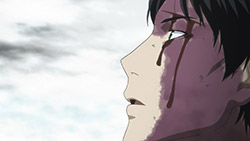 |
 |
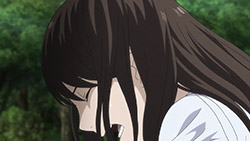 |

Disappointed with the pacing, like being rushed and quite cheesy in a way, especially the Yukine part 🙁
Ebisu’s solution better not be to have Yato revived now that he has a believer! I don’t know how I got to this conclusion, mostly because the idea of a god’s death and reincarnation being repeated over and over with the context of Ebisu, this has left me thinking that’s all on his mind!
That said, I can’t see Noragami ending in any satisfying way following this episode, given that the next one is probably the last one, I wonder how long we’ll have to wait for the 3rd season :p better not be called gomanasi (joke hint: Arigato – Aragoto, Gomensai, Gomanasi XD yes, I’m so lame I just smacked myself too.)
Note: Bishamon never ceases to amaze.
M.
Best b**** fight I’ve ever seen.
https://randomc.net/image/Noragami/Noragami%20Aragoto%20-%2011%20-%20Large%2032.jpg
I agree with fishell that for an anime as great as Noragami, the episode count is so small. 🙁
yea it hurt the ebisu arc a bit. This is still a competent adaptation but the ebisu arc has a bit more gravitas than what the anime adaptation is giving it which is a bit sad. I wish it had at least 9 eps to properly tell everything
loved the “saber Bishamon”, though…
Well, I am not a manga reader of this one but I think Noragami is still as compelling as it is even with the brisk pacing. This episode is a bit cheesy though. What’s with the pep talk of Hiyori and
SaberBishamon?! I was instantly reminded that it’s a shounen series at the end of the day and a pep talk = power up. Nyahaha.If there’s one thing that I particularly like this episode and in the latter half in general is the lack of a true antagonist. Everyone has their own reasons for doing things and it’s not presented halfheartedly.
Now, this is my personal favorite this season given its ability to tell a compelling story (One Punch Man’s weakness), balanced pacing (Gundam’s weakness) and straightforward yet complicated plot (Concrete Revolutio’s weakness). Heck, it even beats out Owarimonogatari for its ability to lay out the supernatural.
The writing’s one of the stronger aspects of this series. It looks at the interpersonal relationships of multiple characters from all angles, allowing the viewer to consider multiple sides of the same story.
There’s something like a true antagonist introduced later on, but even they have their own reasons for doing their things.
They cut out so much…. But it was good episode nonetheless
Anytime I see this face get thrashed is acceptable as screentime.
https://randomc.net/image/Noragami/Noragami%20Aragoto%20-%2011%20-%20Large%2005.jpg
An example of bondage knots? (sorry to say ;P)
https://randomc.net/image/Noragami/Noragami%20Aragoto%20-%2011%20-%20Large%2016.jpg
I could get use to seeing Kofuku and Daikoku in action.
https://randomc.net/image/Noragami/Noragami%20Aragoto%20-%2011%20-%20Large%2023.jpg
Is this a real rescue? Why wasn’t everyone brought with Bishamon?
https://randomc.net/image/Noragami/Noragami%20Aragoto%20-%2011%20-%20Large%2025.jpg
There’s actually two episodes left. This season is 13 episodes.
Bishamon was such a badass in this episode. And I’m loving the character growth.
The animation this whole season has been in the gutter and this episode takes the cake in laziness. :<
i done an marathon and watched the entire Episodes from 1 to 12, and i must say. Men this is good
Glad i done this